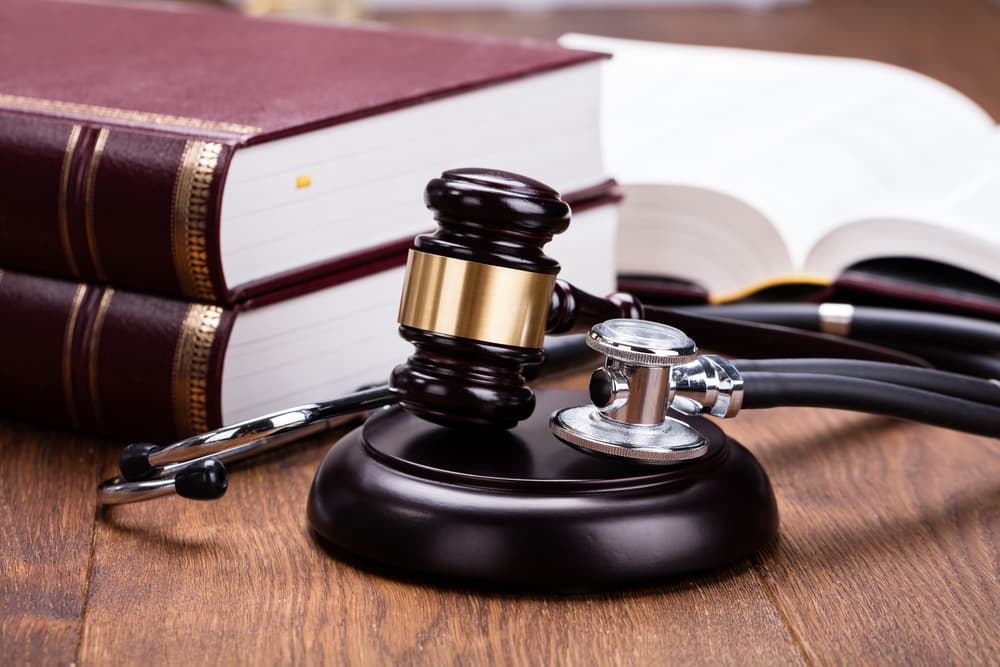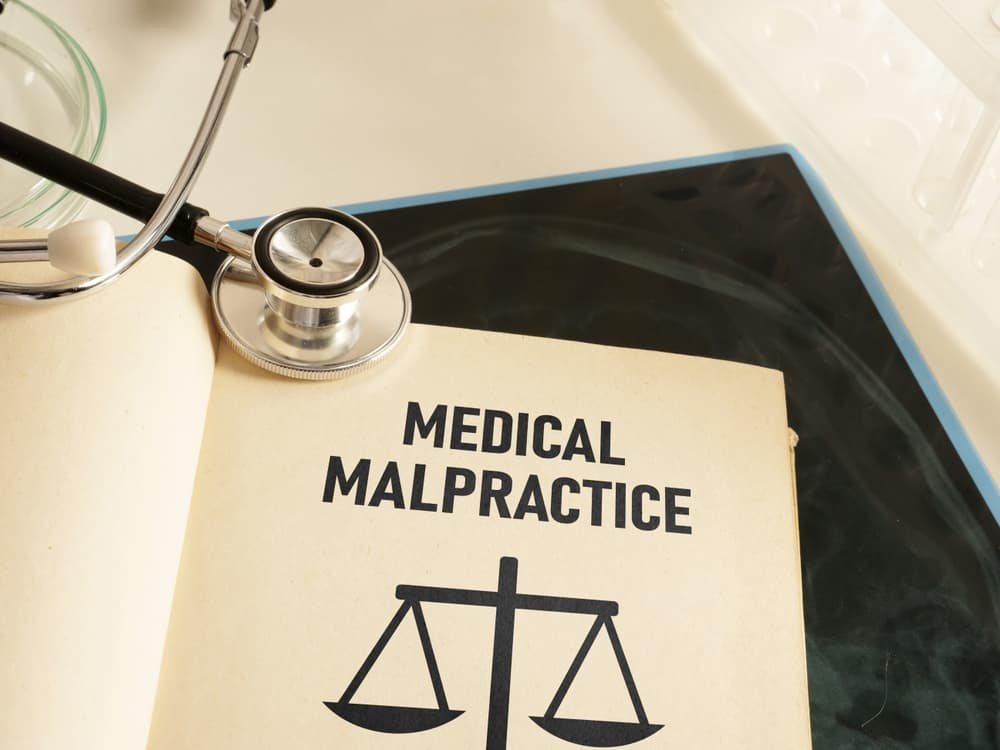All healthcare professionals must conduct themselves like other professionals of the same experience and training would. When they fail to uphold this duty in patient care, healthcare providers put patients at risk. When patients in their care suffer an injury because of their breach of duty, a medical malpractice claim can result.
If you or someone you care about recently got hurt because of medical malpractice, having an experienced Myrtle Beach medical malpractice lawyer is essential to guide you through the process. Many times, cases like these get resolved without going to court.
What is Medical Malpractice?

Over 250,000 patients die every year from medical errors, and many more survive with serious injuries. This problem is so severe that medical malpractice errors are now America's third leading cause of death. When medical professionals and hospitals fail in their duty to protect the patients who trusted them for their care, the results can be life-altering and devastating. Hospital errors alone are responsible for thousands of unnecessary patient injuries and fatalities annually.
Medical malpractice occurs when a medical professional or facility deviates from the specific standard of care for a patient, and the patient suffers harm. Most state laws and the medical profession define medical malpractice as any act or omission by a doctor or other healthcare professional during the treatment of a patient that doesn't align with the accepted norms of practice for that field of medicine and results in injury to a patient. At its most basic, medical malpractice is a type of negligence, which is the standard for personal injury cases.
Courts and legal and medical professionals generally assess a particular act or omission that has caused a patient injury by deciding whether another medical professional in similar circumstances would have behaved similarly to provide the appropriate standard of care to the patient.
Medical Malpractice Examples
Medical malpractice can take on countless forms. General examples of medical negligence that can warrant a lawsuit include the following:
- Disregarding or failing to obtain an appropriate patient history
- Failure to recognize concerning symptoms
- Failure to order proper diagnostic testing
- Failure to diagnose or misdiagnosis
- Misinterpreting or ignoring laboratory results
- Surgical errors or wrong-site surgery
- Unnecessary surgery
- Wrong medication or dosage
- Premature discharge
- Poor or lack of follow-up or aftercare
- Birth injuries
- Anesthesia errors
- Defective medical equipment
Do You Have a Medical Malpractice Case?
Medical practice occurs when a healthcare provider fails to provide the care that a similarly situated provider would ordinarily provide, and patients suffer an injury as a result. To prevail in a medical malpractice case, victims must establish the following elements:
- The medical provider or hospital had a duty of care to keep you from undue harm, injury, or death. This duty of care can vary by medical provider.
- The medical provider or hospital violated or "breached" their duty of care. Civil personal injury law acknowledges that the medical profession and its sub-specialties recognize specific medical standards as acceptable medical care by reasonably prudent medical professionals under similar circumstances. This is what sets the standard of care. All patients have the right to expect that all medical professionals and hospitals will deliver care congruent with these standards. If a healthcare provider did not meet the relevant standard of care when providing treatment, then victims can establish a breach of their duty.
- You suffered harm because of the breach of duty. For a medical malpractice claim to be successful, it's insufficient that the medical professional simply breached the standard of care. While this is concerning, the patient must also prove that they sustained an injury that wouldn’t have occurred if it weren't for another party's negligence. In the medical field, an unfavorable outcome alone is not malpractice.
- The breach was, in and of itself, the direct and proximate cause of your harm. The patient has to show that the other party's negligence resulted in the injury. The case won't be successful if there is an injury without negligence.
- The harm you suffered caused a compensable loss, such as additional medical bills, out-of-pocket expenses (including parking and gas for medical appointments or prescriptions), lost income, and pain and suffering. Medical malpractice cases are incredibly expensive to pursue, often necessitating testimony of many medical experts and innumerable hours of deposition testimony. In a viable case, the patient must establish that they suffered substantial damages from an injury sustained due to medical negligence. If the patient's damages are nominal, the cost of pursuing the case might be greater than the potential eventual recovery. If there is a valid claim for medical malpractice, the patient must establish that their injury caused one or more of the following:
- Disability
- Loss of income
- Unusual or chronic pain
- Suffering and hardship
- Significant past and future medical bills
Do Most Medical Malpractice Cases Reach a Settlement?
Similar to other personal injury cases, medical malpractice claims can be resolved through negotiated settlements outside the courtroom or by litigation in court. While more medical malpractice cases proceed to trial compared to incidents like car accidents or slip and fall accident, a significant majority still find resolution through settlement.
Statistics indicate that 90 percent of medical malpractice cases settle outside the courtroom within two years of filing the claim. This resolution often occurs through mediation, negotiations, or settlement conferences, leading to an agreed-upon compensation amount for the plaintiff (injured party). In contrast to dramatic portrayals on television, where courtroom battles dominate, only about seven percent of medical malpractice cases are resolved with a jury verdict.
Settlement negotiations might begin when the doctor's medical malpractice insurance company learns of the lawsuit. During the mediation phase, the insurance company may present a settlement offer. As the plaintiff, you retain the right to either accept or reject this offer, and your decision to settle before trial is entirely voluntary. The determination to accept or reject the initial settlement offer hinges on various factors, with your medical malpractice attorney providing guidance to ensure you secure the compensation you deserve. Suppose you believe the offered settlement doesn't adequately represent the full extent of your damages. In that case, you retain the option to proceed with litigation.
Before a final settlement, approval from the doctor or healthcare provider facing the lawsuit (defendant) is necessary, a step that can prove challenging based on the specifics of the case.
Understanding Settlements
Settlements are crucial in the legal landscape, particularly in medical malpractice cases. They are voluntary agreements reached between two primary parties in a legal dispute – the plaintiff, the injured party or the party bringing the lawsuit, and the defendant, the liable party whom the plaintiff is suing. In medical malpractice cases, the defendant is often the healthcare provider or institution accused of negligence.
The purpose of settlements is multifaceted:

- Compensation for the Injured Party: Settlements primarily aim to provide financial compensation to the injured party for their damages. These damages may include medical costs, lost income, pain and suffering, and any other losses resulting from the alleged malpractice.
- Resolution Outside of Court: Settlements should resolve legal disputes without requiring a formal trial. By reaching an agreement through negotiation or other alternative dispute resolution (ADR) methods, both parties can avoid the time-consuming and costly process of going to court.
- Avoidance of Legal Costs: Legal proceedings, especially trials, can incur substantial costs for both parties involved. Settlements allow the parties to bypass these costs, including attorney fees, court fees, and other expenses associated with a trial.
- Control Over the Outcome: Settlements provide the involved parties with more control over the outcome of the case. Instead of relying on a judge or jury to decide, the parties can negotiate terms that they find acceptable.
- Confidentiality: Settlements often come with confidentiality agreements. This means that the settlement terms, including the compensation amount, are typically kept confidential. This can benefit both parties, preserving their privacy and preventing potential reputational damage. In addition, without going to court, the case doesn't become a matter of public record.
- Finality and Closure: A settlement brings finality to the legal dispute. It allows the parties to move forward without the prolonged uncertainty accompanying a protracted legal battle. This can be particularly important for individuals seeking closure and the ability to focus on their recovery.
Understanding these settlement benefits underscores their significance in the legal process. In medical malpractice claims, where emotions can run high, and the complexities of healthcare add many challenges, settlements become a practical means of addressing grievances that benefit all parties involved.
Factors Influencing Settlements
Many factors influence settlements in medical malpractice cases, each contributing to the complexity and dynamics of negotiations between both parties. Understanding these factors is essential for everyone involved to navigate the settlement process effectively.
- Strength of the Evidence: The strength of the evidence plays an essential role in the negotiation dynamics. If the plaintiff has compelling evidence supporting their medical malpractice claims, it strengthens their negotiating position. On the other hand, a defendant may be more inclined to settle if the evidence against them is strong.
- Expert Opinions: In medical malpractice cases, expert opinions from professionals in the relevant field carry substantial weight. The opinions of medical experts can influence the perceived strength or weakness of the case, impacting the willingness of both parties to settle. Agreements among experts may facilitate a smoother negotiation process.
- Severity of Injuries: The extent and severity of the plaintiff's injuries significantly impact the potential compensation and, consequently, the settlement amount. Severe injuries that result in extensive medical bills, ongoing treatment, and long-term impairment often lead to higher settlement amounts.
- Economic Damages: Economic damages, such as medical expenses and lost income, are quantifiable losses that directly influence the compensation sought by the plaintiff. Accurate assessments of economic damages contribute to informed settlement discussions. When you hire a seasoned medical malpractice attorney, they can accurately asses your economic damages and protect your rights.
- Non-Economic Damages: Non-economic damages, including pain and suffering, emotional distress, and loss of enjoyment of life, are subjective as they don't have an inherent value attached to them. Evaluating and quantifying these damages can be challenging, but they significantly impact the overall settlement value.
- Insurance Policy Limits: The defendant's insurance policy limits act as a financial constraint on potential settlements. If the damages exceed the policy limits, the defendant may be personally responsible for the excess amount. This factor can influence the defendant's willingness to settle within the policy limits.
- Damage Caps: Many states have damage caps, or legal limits, on the amount of compensation an injured party can receive in a medical malpractice claim. If your state has a limit, it will also impact your settlement amount.
- Risk of Litigation: Both parties assess the risks associated with proceeding to trial. Uncertainties in legal proceedings and the potential for higher costs and prolonged timelines may incentivize parties to settle. The perceived strength or weakness of each party's case influences their risk calculus.
- Public Relations Considerations: For defendants, especially healthcare providers or institutions, public relations considerations may affect the decision to settle. Avoiding a public trial that can attract negative attention and damage reputations might be a motivating factor in reaching a settlement.
- Previous Precedents: Previous settlements and verdicts in similar medical malpractice cases can serve as benchmarks for negotiations. Parties often consider the outcomes of comparable cases to inform their expectations and assess the reasonableness of proposed settlement amounts.
Understanding these multifaceted factors is crucial for navigating the intricacies of settlement negotiations in medical malpractice cases. Legal professionals play a pivotal role in advising their clients, evaluating the nuances of each factor, and working toward a resolution that aligns with the interests of all parties involved.
Are You the Victim of Medical Malpractice? Contact a Skilled Lawyer Today

Suppose you suffered injuries in a medical malpractice event. In that case, it's in your best interest to talk to a skilled personal injury lawyer as soon as possible. You can protect and secure your rights by hiring a lawyer to represent your claim today.
Begin the process by scheduling your free, no-risk consultation with a medical malpractice attorney near you.








